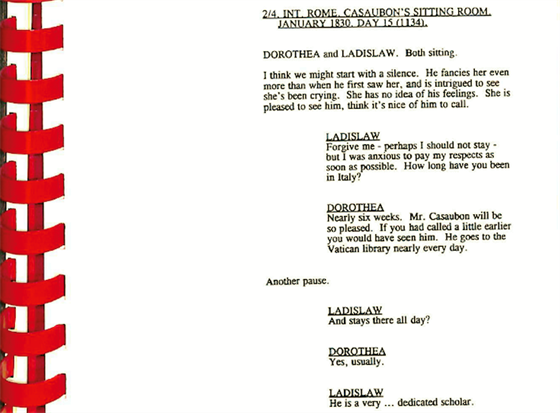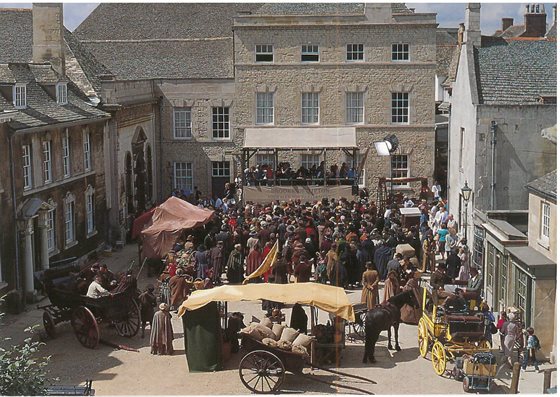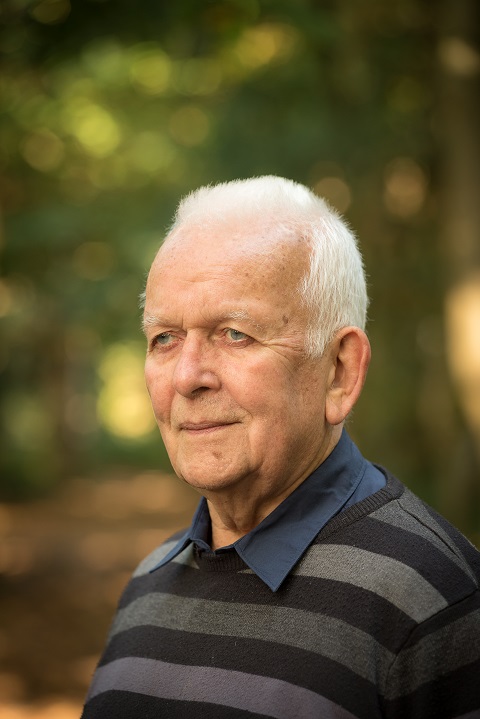Researchers at De Montfort University Leicester (DMU) have secured funding for a pioneering project to create a new digital resource to help people understand the process of transforming classic literature for television and film.
Drawing on papers from DMU Special Collections’ Andrew Davies archive – donated by the award-winning screenwriter in 2015 – original manuscript pages from the British Library, and programme clips, researchers will develop a first-of-its-kind online tool that takes people on a journey from the original manuscripts of George Eliot’s groundbreaking novel Middlemarch, through to Andrew Davies’ celebrated 1994 BBC adaptation.

DMU was donated a wealth of materials by screenwriter Andrew Davies
Professor Justin Smith, Director of the Cinema and Television History Institute at DMU, is the principal investigator for the project, which is funded by the Arts and Humanities Research Council.
He said: “We’re delighted that Andrew Davies’ generous donation of his literary papers will enable us to produce an educational resource that will transform our understanding of the adaptation process, from source to script to screen.
“This is an original concept. To create a digital resource of this kind has never been done before and we hope it will become a prototype that could be reproduced for virtually any adaptation.”
The project coincides with the 150th anniversary of the serialized publication of Middlemarch in 1871-2 (Book I appearing on 1st December 1871).

The town of Stamford was transformed for Andrew Davies' Middlemarch
“Many literacy critics consider Middlemarch to be the first modern English novel,” continued Professor Smith. “It was unique in that it was the first novel to map and dissect provincial English society on the cusp of the Victorian age, and its emotional and intellectual landscape is multi-layered.
“Andrew Davies’ 1994 adaptation of Middlemarch was also a landmark series. It was one of the first dramas to be filmed on location, transforming the town of Stamford, Lincolnshire – a departure from the studio-bound classic dramas which had been the norm.”
Andrew Davies, who is a visiting professor and has an honorary doctorate from DMU, said: “I am thrilled that Professor Justin Smith and his team are giving serious academic recognition to my adaptation of Middlemarch. It was a hugely important cultural event in its time, putting the classic adaptation back on the map and paving the way for Pride and Prejudice and many other hugely successful period dramas.”

Andrew Davies has worked with DMU for a number of years
On this interdisciplinary research project, Professor Smith will work alongside experts including DMU’s Professor Gabriel Egan, Director of the Centre for Textual Studies, Dr Anna Blackwell from the Centre for Adaptations, Head of DMU Special Collections Katharine Short, and Research Fellow Dr Lucy Hobbs.
They will also collaborate with researchers from the University of Auburn, USA, led by Digital Humanities expert Dr Beverley Rilett, Head of the George Eliot Archive.
The 15-month project, beginning in January, will culminate in a special event at the British Library in December 2022, bringing together representatives from educational publishing and the heritage sector, to assess the development potential of this new online adaptation resource for A-level students and visitors to literary heritage sites and museums.
Alex Lock, curator of modern archives and manuscripts at the British Library, said: “The British Library is home to the final revised draft of George Eliot’s Middlemarch. We’re looking forward to working with colleagues at DMU to make sure more people can access and interpret this incredible manuscript.”
“The tool we create has the potential for tremendous benefits beyond academia,” added Professor Smith. “Screen adaptations are hugely popular with a whole range of audiences so we really hope that this is going to inspire and enthuse people.”
Posted on Wednesday 1 December 2021